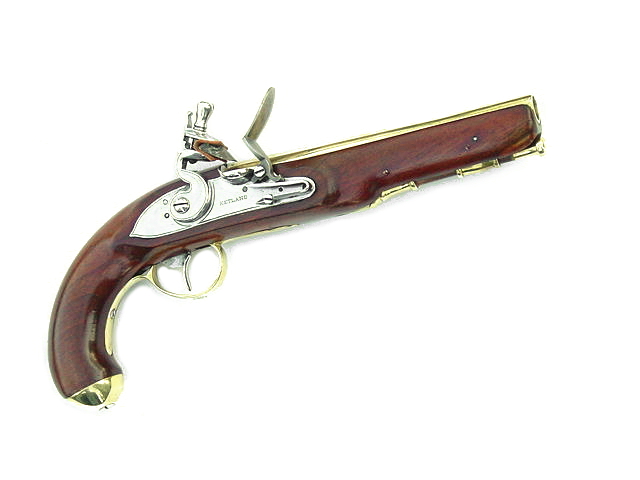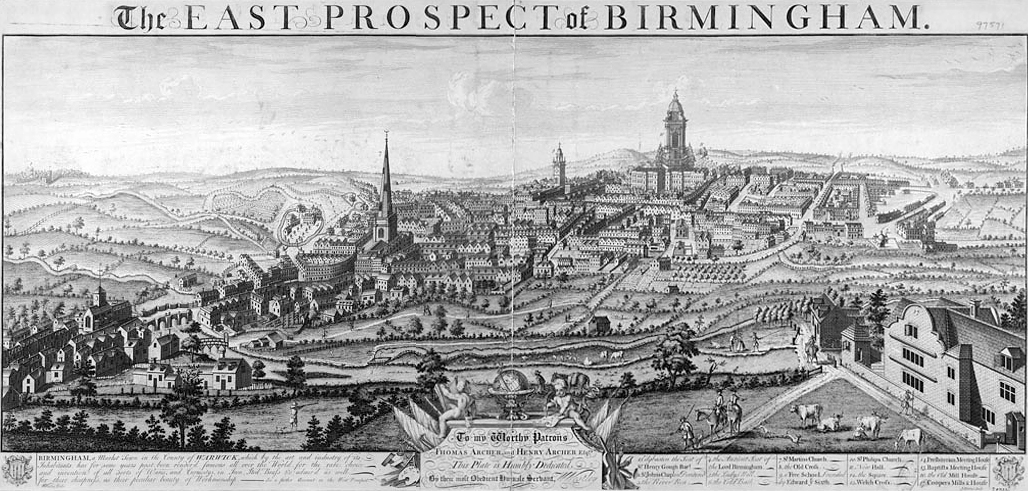|
Thomas Ketland
Thomas Ketland & Co. was a firearms manufacturer founded in Birmingham, England c. 1760. Thomas Ketland Senior was a highly successful Birmingham gun maker. He started his business around 1760 and expanded into the export market around 1790. He died in 1816. The business carried on until bankruptcy in 1821. The company manufactured flintlock pistols, becoming quite successful in its field. W. Ketland was Thomas Ketland Sr's eldest son. He was originally a partner alongside his father and William Walker. He petitioned to liquidate his part in the company in 1800. The partnership was dissolved in 1801. He died in 1804 but the business carried on to at least 1831. The story about an earlier W. Ketland gunmaker, going back to the 1740s (Gardner says 1715), is not verified. The directory dates are 1808 to 1831 but W. Ketland was trading under that name as early as the middle of 1801 and perhaps as early as the end of 1800. The Philadelphia Ketlands are 2nd son Thomas Jr. and John. Thom ... [...More Info...] [...Related Items...] OR: [Wikipedia] [Google] [Baidu] |
Birmingham
Birmingham ( ) is a City status in the United Kingdom, city and metropolitan borough in the metropolitan county of West Midlands (county), West Midlands, within the wider West Midlands (region), West Midlands region, in England. It is the List of English districts by population, largest local authority district in England by population and the second-largest city in Britain – commonly referred to as the second city of the United Kingdom – with a population of million people in the city proper in . Birmingham borders the Black Country to its west and, together with the city of Wolverhampton and towns including Dudley and Solihull, forms the West Midlands conurbation. The royal town of Sutton Coldfield is incorporated within the city limits to the northeast. The urban area has a population of 2.65million. Located in the West Midlands (region), West Midlands region of England, Birmingham is considered to be the social, cultural, financial and commercial centre of the Midland ... [...More Info...] [...Related Items...] OR: [Wikipedia] [Google] [Baidu] |
Flintlock Pistol
Flintlock is a general term for any firearm that uses a flint-striking ignition mechanism, the first of which appeared in Western Europe in the early 16th century. The term may also apply to a particular form of the mechanism itself, also known as the '' true flintlock'', that was introduced in the early 17th century, and gradually replaced earlier firearm-ignition technologies, such as the matchlock, the wheellock, and the earlier flintlock mechanisms such as the snaplock and snaphaunce. The true flintlock continued to be in common use for over two centuries, replaced by percussion cap and, later, the cartridge-based systems in the early-to-mid 19th century. Although long superseded by modern firearms, flintlock weapons enjoy continuing popularity with black-powder shooting enthusiasts. History French court gunsmith Marin le Bourgeoys made a firearm incorporating a flintlock mechanism for King Louis XIII shortly after his accession to the throne in 1610. However, firearm ... [...More Info...] [...Related Items...] OR: [Wikipedia] [Google] [Baidu] |
Gun Quarter
The Gun Quarter is a district of the city of Birmingham, England, which was for many years a centre of the world's gun-manufacturing industry, specialising in the production of military firearms and sporting guns. It is an industrial area to the north of the city centre, bounded by Steelhouse Lane, Shadwell Street and Loveday Street. The first recorded gun maker in Birmingham was in 1630, and locally made muskets were used in the English Civil War. By the 1690s Birmingham artisans were supplying guns for William III of England, William III to equip the English Army (and successor British Army after 1707). The importance of the trade to the town grew rapidly throughout the 18th century, with large numbers of guns produced for the History of slavery, slave trade. The 19th century saw further expansion, with the Quarter meeting the demand for the Napoleonic Wars, Crimean War, American Civil War and the British Empire. During both the First and Second World Wars the area played a m ... [...More Info...] [...Related Items...] OR: [Wikipedia] [Google] [Baidu] |


